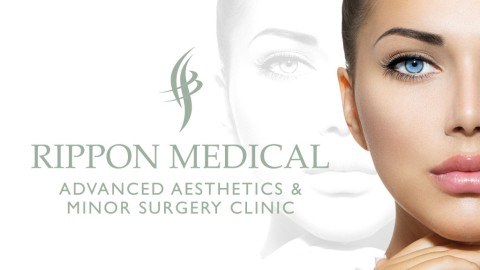Happy New Year to all our patients. We have received enquiries lately asking if we are offering deals or discounts for injectables or aesthetic treatments. For those that know Rippon Medical Services you will already by comforted in knowing that we would never use promotional tactics to encourage you to make decisions about carrying out aesthetic procedures. Furthermore, we would like to inform you that we follow The General Medical Council (GMC) guidance to aesthetic practitioners.
The standards are outlined in guidance for doctors who offer cosmetic interventions. The guidelines relate to patient consultations, giving patients time to reflect, and responsible advertising. At Rippon Medical Services we welcome these new guidelines, as they help to create a safer industry centred around you, the patient. We already follow these best practices in our clinic as these guidelines help us to enforce the importance of patient care in aesthetics. These standards came into effect on Wednesday 1 June 2016 for all GMC members.
The 7 essentials when providing cosmetic procedures
The GMC guidelines state that anyone providing cosmetic procedures must put into practice the following standards.
1. Seek our patient's consent ourselves.
It is our responsibility, as your treating doctors, to discuss cosmetic procedures with you, making sure you have all the information you need to make an informed decision. This must never be delegated to a third party.
2. Give patients time for reflection.
We must make sure our patients have time to consider the information about the risks and possible outcomes of a procedure, so they can decide whether or not to go ahead with it.
3. Consider each patient's psychological needs.
We must consider any patient's vulnerabilities when discussing cosmetic interventions, and make sure we are satisfied that their request for the procedure is voluntary.
4. Work within our competence.
If we feel we cannot safely meet your needs, then we must ask for advice or refer you – the patient – to a colleague. As cosmetic practitioners, we must recognise our own limits.
5. Make sure our patients have the information they want or need.
This includes written information to support continuity of care, which explains the medicines or implants used.
6. Take particular care if considering cosmetic procedures for children.
We must not perform a cosmetic intervention on a child or young person unless we judge for ourselves that they want it – even if the parent has given their consent.
7. Market our services responsibly.
Practitioners are unable to use promotional tactics that might risk encouraging you, as our patients, to make ill-considered decisions.
We are unable to offer discounts to treatments or offer free treatments as incentives. It is also considered bad practice to offer cosmetic procedures as prizes.
These include loyalty schemes. You can find more information about the new guidelines for doctors who offer cosmetic interventions on the GMC website.
